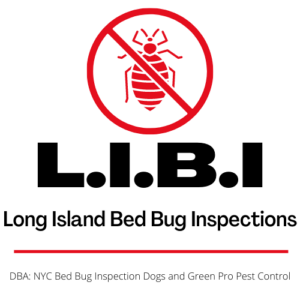Bed bugs don’t exist in a vacuum. Like every other living creature on Earth they are a small part of a large and complex ecosystem. And like any other creature in that ecosystem they have their own place on the food chain. They have, in short, a variety of natural predators. Predators that are more than happy to hunt bed bugs down and make a tasty meal of them.
So who are these natural predators and can they be used to help fight the growing populations of bed bugs around the country? The first part of that question is easy enough to answer. The second part is a bit more sticky.
Talking of Bed Bugs
Bed bugs, or Cimex Lectularius to give them their scientific name, are a common household pest that has plagued human being for centuries. These tiny blood-sucking insects feed on the blood of humans and small mammals. They are most often found in their host’s sleeping areas, which is how they earned the name ‘bed bugs’.
These pests primarily feed by night, leaving small bite marks and irritating rashes on their victims. They’re notoriously difficult to get rid of and an infestation can easily lead to mental, physical and financial stress for their hosts/victims.
Of course bed bugs can be victims themselves. They may be predators but there are also insects and animals that are all too happy to prey on bed bugs.
Cockroaches
When it comes to bed bug predators cockroaches are at the top of our list. They not only eat adult and nymph bed bugs they also feed on bed bug eggs. Some scientists and pest control experts believe that the recent boom in bed bug populations may be a result of the longterm use of insecticides to combat cockroach infestations. The theory being that the marked decline in cockroach populations has allowed bed bugs to flourish.
Of course cockroaches are arguably worse than bed bugs. Not only are they unsettling in the extreme they have a tendency to carry diseases. So no one would really opt to trade a bed bug infestation for a house full of cockroaches. More to the point cockroaches would be hard pressed to keep up with the breeding speed of a colony of bed bugs. They could never eat enough, fast enough, to act as a bed bug deterrent.
Pharaoh Ants
Pharaoh ants are voracious eaters and will devour just about anything that crosses their path – including bed bugs and their eggs. The origin of the pharaoh ant is unclear. They are believed to have originated in Africa, though they have long since spread to nearly every continent on the planet.
Whatever their origins the pharaoh ant has become a major pest in their own right and a growing concern for homeowners across the United States. They not only infest homes and businesses, they can contaminate food and transmit serious diseases to humans. The pharaoh ant may be a prime bed bug predator, but they are not a viable option when it comes to controlling bed bug populations.
Masked Hunter Bugs
Masked hunters are a type of assassin bug. Originally found in Western Europe they can now be found in parts of the United States – particularly in the East. Masked hunters are no threat to humans, though their bite can be painful and can cause swelling and numbness in extreme circumstances.
Masked hunter bugs are most often found outdoors. They camouflage their bodies with dust particles so they can blend in with their surroundings. Bed bugs, sow bugs and earwigs form a large part of their diet. However, they do not feed often enough to make them truly successful as a bed bug predator.
Can Natural Predators Deliver Effective Bed Bug Control?
These are only a few natural predators that prey on bed bugs. We’ve focused on insect predators here, but bed bugs are also threatened by lizards, centipedes, and many breeds of spider. All of these predators have one thing in common. While they do indeed feed on bed bugs, none of them rise to the level of effective bed bug control.
Most of these predators are pests themselves, and there’s little point in trading one troublesome pest for another. More importantly, none of these predators can keep up with the breeding speed of the bed bug. They could never successful control a growing bed bug population, and so are ineffective as a control mechanism. When it comes to eliminating bed bugs human beings are still the most effective predator.
If you suspect you have a growing bed bug problem the best course of action is to contact a professional inspection and removal service at your earliest opportunity. The sooner you act the sooner you can eliminate these unwanted pests from your home or business.
Published by Scott Palatnik
If you believe you’ve brought bed bugs into your home or office, give us a call, we can help!
Now with 2 locations. On Long Island @ 516-619-6149, or in NYC @ 212-299-9186
We are Long Island Bedbug Inspections.
Your Bedbug Inspection, and Elimination solution.


